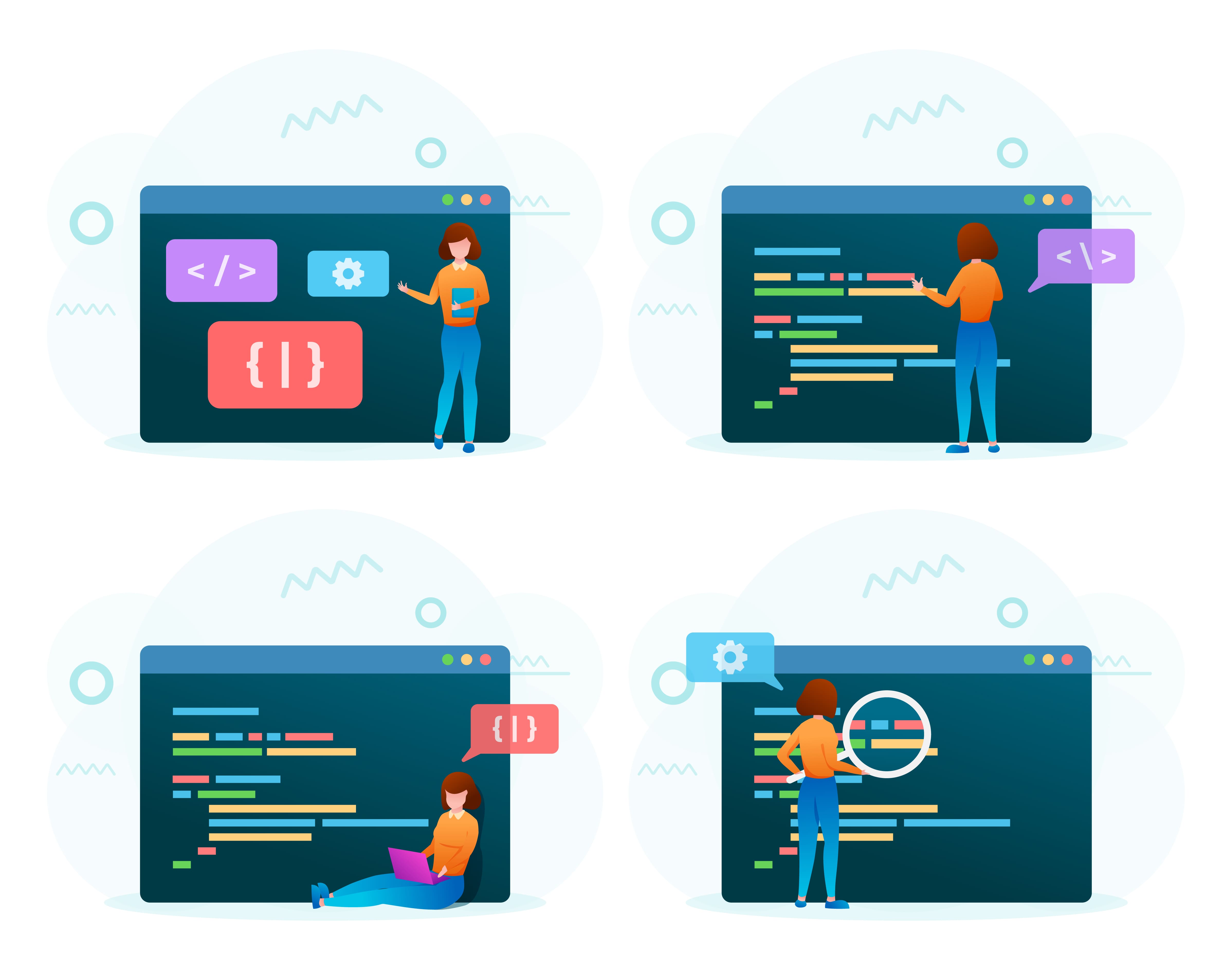Our Global Presence : ![]() India
India ![]() Dubai
Dubai
Coding an NFT marketplace like Rarible is not complex anymore. Use our pre-built programmed script and launch your platform on the go.

The NFT market has seen explosive growth in recent years. In 2020, the NFT market was valued at $250 million. By the end of 2021, it had grown to a staggering $28.85 billion, reflecting a 11540% increase. This trend underscores the incredible potential of the NFT space.
Beyond art, NFTs are being used for collectibles. A Rarible-like clone can tap into this market, as rare virtual collectibles, trading cards, and gaming items have witnessed remarkable sales figures.
Virtual assets within video games are now being tokenized as NFTs. Games like Axie Infinity and Decentraland are thriving in this ecosystem, offering users the chance to buy, sell, and trade in-game assets.
The underlying blockchain technology provides transparency, security, and immutability. These features are attractive for both creators and buyers, instilling trust in the marketplace.
NFTs have revolutionized the art world. According to a report by NonFungible.com, digital art NFT sales surged by 299% in 2020, reaching $251 million. This growth is likely to persist as more artists embrace the technology.
Musicians and content creators are increasingly turning to NFTs for new revenue streams. Artists like Kings of Leon and Grimes have sold music and digital art as NFTs, opening up a new avenue for revenue.
Decentralized Finance (DeFi) and NFTs are converging. This offers the potential for lending, borrowing, and yield farming with NFT collateral, expanding the financial utility of NFTs.
NFT platforms like Rarible promote user engagement through features like governance tokens and staking, making it not just a marketplace but a community.
Make sure you have a suitable development environment with necessary software and tools. You'll need a code editor, web server, and a local blockchain environment like Ethereum's Ganache for testing.
Install the required dependencies, including Node.js, npm (Node Package Manager), and a package manager like Yarn. Our rarible clone script has specific prerequisites, so check the documentation.
Customize the front-end of your marketplace. This involves designing and developing the user interface. Most Rarible clones use technologies like React.js for the front end.
Integrate your marketplace with a blockchain network. Ensure that your smart contracts can interact with the blockchain to mint, transfer, and trade NFTs.
Choose our Rarible clone script. You can find open-source or commercial scripts available on platforms like GitHub or blockchain development marketplaces. But they are vulnerable to risks.
Deploy the smart contracts required for your NFT marketplace. You may need to configure these contracts to suit your specific needs, including your token standard, marketplace fees, and governance parameters.
Implement the back-end functionalities, such as user authentication, NFT creation, buying/selling, and wallet integration. Node.js and Express.js are common choices for the back end.
Implement security measures to protect your platform from vulnerabilities and attacks. Test your platform extensively, especially in a local environment, to catch and fix any bugs or issues.
Deploy your Rarible clone to a production environment. This usually involves setting up hosting, configuring domain names, and ensuring the platform is accessible to users.
Users can easily create and mint their own NFTs, including digital art, music, videos, virtual goods, and more. The script is engineered in allowing artists and content creators to tokenize their work.
NFTs can be listed on the NFT marketplace for sale. Users can browse a wide variety of NFTs, including those created by well-known artists and emerging talents.
The script utilizes its native governance and utility token which is built on the Ethereum blockchain. Users can earn and trade such tokens for various purposes on the platform.
Creators receive royalties on secondary sales of their NFTs. This incentivizes artists to continue creating and benefits them as their work appreciates in value.
Users can organize their NFTs into collections, making it easier to showcase and market their unique selection of NFTs.
The platform offers personalized recommendations to help users discover NFTs that align with their interests and preferences.
Creators can customize their NFTs by setting attributes, royalties, unlockable content, and other metadata. This flexibility empowers artists to control and profit from their creations.
Collectors and investors can purchase NFTs directly from the platform. The marketplace offers a straightforward buying process, allowing users to add items to their collections.
The marketplace operates on (DAO), which means that users who hold NFT tokens have a say in platform decisions. They can propose and vote on changes to the platform, providing a sense of community ownership.
Users can stake their RARI tokens to participate in governance decisions and earn rewards. Staking can grant users voting power and additional tokens.
The script inside allows users to connect their Ethereum wallets for easy transactions and NFT management. This integration ensures a secure and user-friendly experience.
In addition to fixed-price listings, this clone script supports auctions where users can bid on NFTs. Auctions create excitement and competitive bidding dynamics.
Users can view their NFT collection and manage their platform owned tokens within the such wallet system.
We offer a compelling solution for entrepreneurs and businesses looking to establish their presence in the NFT space. By exploring the demo and discussing your specific requirements and pricing with iMeta, you can make an informed decision about how to proceed with your NFT marketplace venture.
At iMeta, we offer flexible pricing options for our Rarible Clone Script, catering to the diverse needs and budgets of our clients. While specific pricing details may vary, their packages often include:
License Fee: The cost for the license to use the clone script for your platform.
Customization Costs: Additional fees for any specific customizations or features you require.
Support and Updates: Pricing may also cover ongoing technical support and updates to ensure your platform remains current and secure.

When creators mint their NFTs on the platform, they are charged a fee. This revenue stream provides an initial income source for the platform.
Users can stake native tokens for governance rights and rewards, making it an integral part of the platform's ecosystem. The value of such tokens can be appreciated as the platform grows.
The marketplace owners can enter into partnerships with artists, celebrities, brands, and organizations to bring exclusive NFT drops to their platform that result in shared revenue.
Platform owners can generate revenue by allowing advertisers to promote their NFTs or related products and services within the marketplace.
Curate and highlight certain NFTs, artists, or collections for a fee. This premium curation can help artists gain visibility and attract collectors willing to pay for the prominence.
Earns a percentage of each NFT sale on the marketplace as a commission fee. This fee is typically shared between the platform and the creator, with a portion going to the artist as a royalty.
You may offer additional services related to governance, such as decentralized voting mechanisms, which can generate fees for the platform.
You can offer premium features or services for artists and collectors at a fee. This may include enhanced visibility for listings, marketing support, curation, or customization options for NFTs.
Offer data and analytics services to creators and collectors. This could include insights into market trends, NFT valuation, and user behavior for a fee.
Some NFT marketplaces are exploring DeFi integrations, allowing users to use their NFTs as collateral for loans. You could potentially explore this option, generating income through interest or fees.

















Building an NFT marketplace from scratch can be expensive. White-label solutions are often more cost-effective, as they save you the expenses associated with extensive development and testing.
While white-label solutions provide a pre-built framework, they are also highly customizable. You can tailor the platform to your specific branding, design, and feature requirements, making it unique to your business.
You don't need to be a blockchain or NFT technology expert to launch a white-label NFT marketplace. These solutions come with documentation and support to help you get started.
As the white-label provider of rarible clone script, we typically take care of updates and maintenance, ensuring that the platform remains current, secure, and functional.
White-label solutions can be tailored for specific niches or industries, allowing you to target specialized markets like digital art, music, gaming, or collectibles.
White-label solutions are typically built on tried and tested technology. This reduces the risk of technical issues and ensures a more stable platform.
Our white-label solutions are designed to be easily scalable. As your user base and transaction volume grow, you can expand the platform without significant technical challenges.
Our solution often handles security and compliance aspects, reducing the burden on your team. We are responsible for ensuring the platform adheres to legal and regulatory requirements.
If you're considering the NFT marketplace business and want to test the waters, a white-label solution allows you to create a prototype quickly. This way, you can gauge market interest before committing to a full-scale development project.
By leveraging a white-label solution, you can concentrate on the business aspects of running your NFT marketplace, such as user acquisition, marketing, and partnerships, without getting bogged down in the technical complexities.